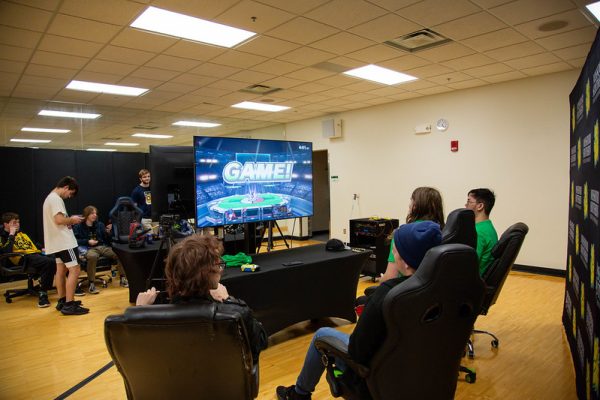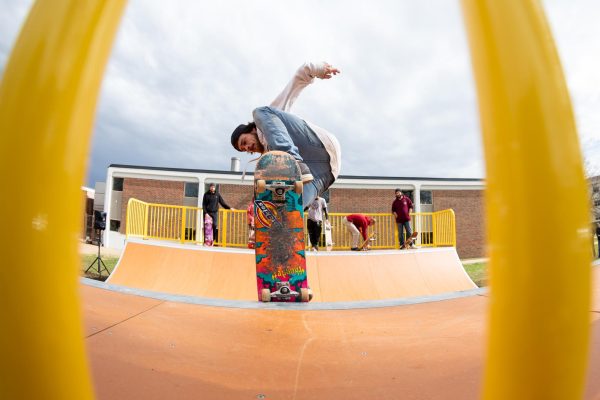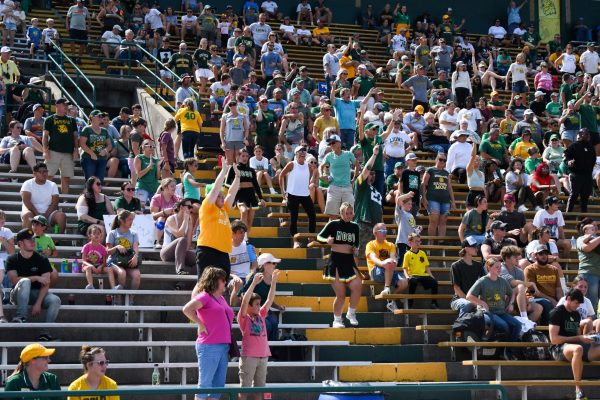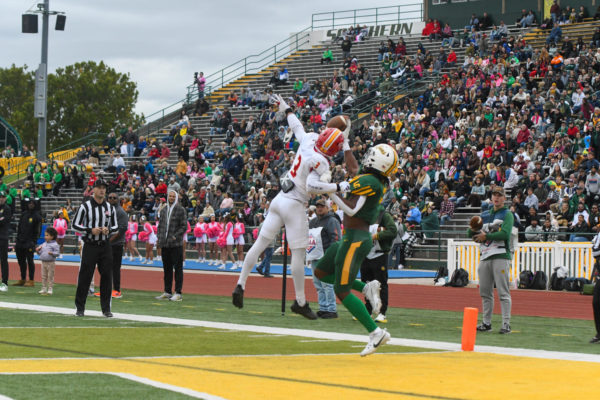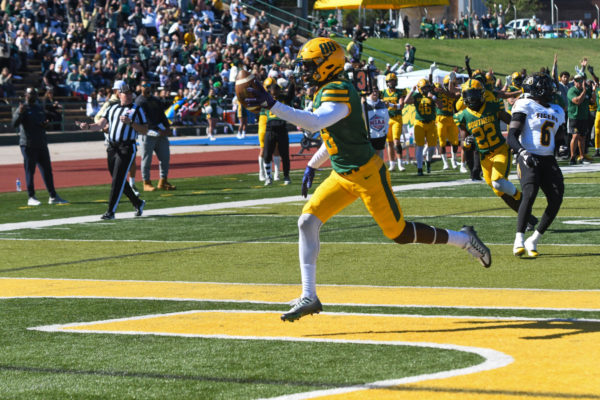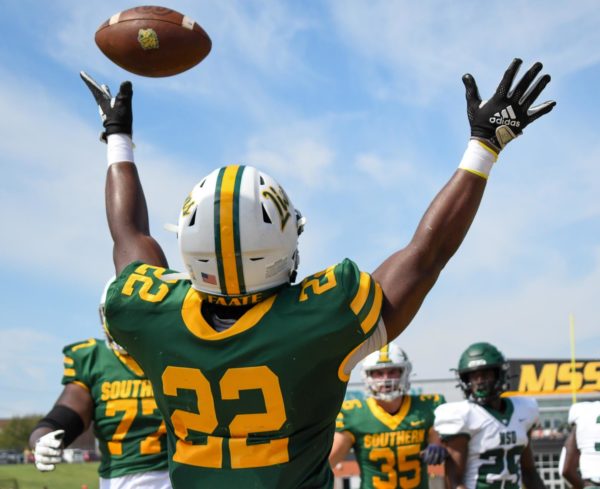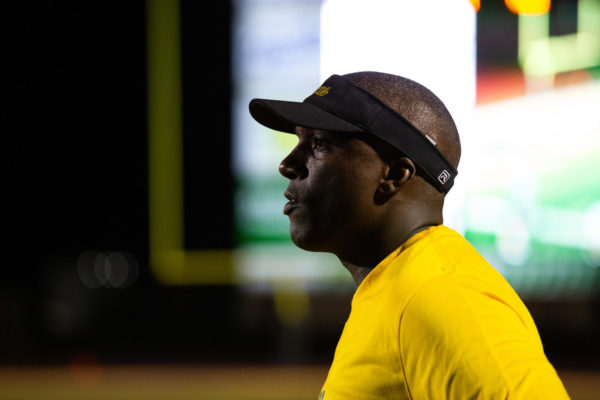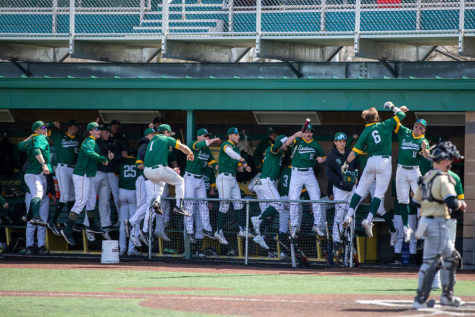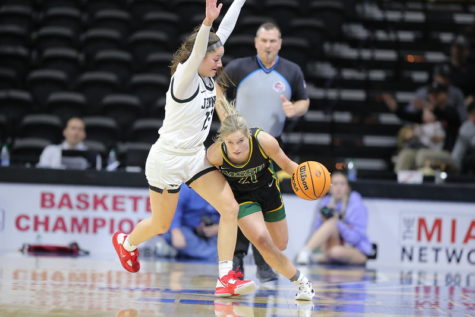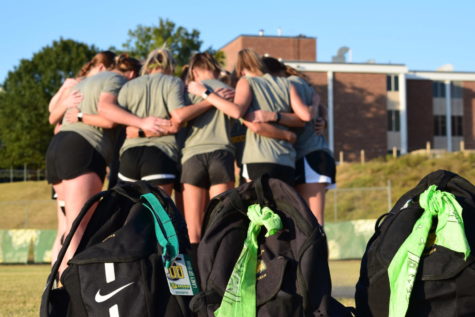Quinten’s question: “Are athletic policies creating issues for student journalists?”
The free press is a right and freedom that was built in the Constitution.
According to an article published by FIRE, The Foundation for Individual Rights in Education, since 2013 the United States press freedom ranking has decreased to 45th globally.
As the Student Press Law Center declared 2019 as the year of the Student journalist, I have found significant importance in exploring the biggest hurdle in student journalism; covering sports on college campuses.
Sports and athletic functions are not only fueled by television, licensing and donor revenues, but athletics are increasingly important to the community.
The National Football Foundation reported college football being the second most popular sport with 47 million fans attending games and 366 telecasts reaching 163 million fans in 2018.
With such an interest in athletics, the unwavering implication of university censorship policies continue to make student reporters stumble.
In 2012, coaches brought the new wave of restrictions on journalist–students, and professionals.
Coaches from the University of Southern California, Washington State University, and the University of North Carolina ordered reporters to refrain from reporting on player injuries during practices or their press credentials would be revoked.
“Some public universities have policies that require all student newspapers to be submitted to an adviser before they are published,” as stated in FIRE’s Guide to Free Speech on Campus.
“Furthermore, if these policies give any member of the administration of a public university the right to edit content on the basis of viewpoint–either explicitly or in practice–then such policies will almost certainly be struck down in a court of law.
Here at Missouri Southern, we aren’t an exception to such policies. When meeting in the newsroom, amid production unreachable sources in athletics is a common occurrence. On page 57 of Southern’s Student Athlete Handbook, the Athletic Media Relations & Marketing composed a clause which further explains the issue:
“The primary policy regarding student-athletes as they relate to the Sports Information Office is that all media requests for student-athlete interviews are to be cleared through the Athletic Media Relations Director (this does not include media requests for interviews on game day).
If a student-athlete is contacted by a member of the media, either local or from the student athlete’s hometown that student-athlete is to refer the media representative to the Athletic Media Relations Director, who will then arrange the interview time and site. This helps to ensure the privacy of Missouri Southern’s student-athletes, allows student-athletes with limited experience with media interviews the opportunity to schedule ‘mock interviews,’ and eliminates the possibility of opposing schools trying to obtain ‘inside information.’
Justin Maskus, Athletic Media and Relations Director, believes that coaches should know an interview is going to happen before it shows up in print.
“All it [Southern Athletic Media policy] does is makes sure I know that the coach knows; one, when the interview is going to be taking place and that we’ve scheduled the interview at a time that’s going to be beneficial to you [journalist] and the student athlete.”
Frank D. LoMonte, Executive Director of the Student Press Law Center agrees that the university’s requests to eliminate the possibility of opposing schools trying to obtain “inside information” is a viable restriction, necessary to avoid substantially disrupting university functions.
“What’s not constitutional is to say that nobody gets to talk to journalists, or nobody gets to talk to the news media without advance approval. That’s an overly broad restriction that, if it were ever challenged, would be struck down as unconstitutional,” said LoMonte.
Journalists are advised to refrain from sending questions before interviews to eliminate predetermined answers and create less room for rehearsed responses, creating more spontaneity in the interview room.
According to Maskus, the mock-interview clause of the policy implemented by Athletic Media & Relations is no longer in effect and should be updated and removed.
Whether Athletic Media Relations’ intent is to successfully prepare athletic-affiliated students for interviews, or to spearhead information obtained by reporters, David Spark, former contributor at Forbes said:
“If you send questions before an on-camera interview, you will never have the opportunity to see an emotional response.”
In recent years following the 1988 Hazlewood vs Kuhlmeier case, the Supreme Court’s ruling that school-sponsored expression, including school newspapers may be regulated, student journalists have pioneered new legislature eliminating before-publication review by school administrators.
Student journalists in Washington won back their First Amendment rights in 2018, when Sen. Joe Fain R-Auburn signed the New Voices Act, eliminating before-publication review by school administrators across the state.
The Student Press Law Center states that the courts have ruled that if a school creates a student news medium and allows students to serve as editors, the First Amendment drastically limits the school’s ability to censor.
Do you think athletic policies similar to those in place at Missouri Southern create censorship in student news mediums?
Your donation will support the student journalists of Missouri Southern State University. Your contribution will allow us to purchase equipment and cover our annual website hosting costs.



















